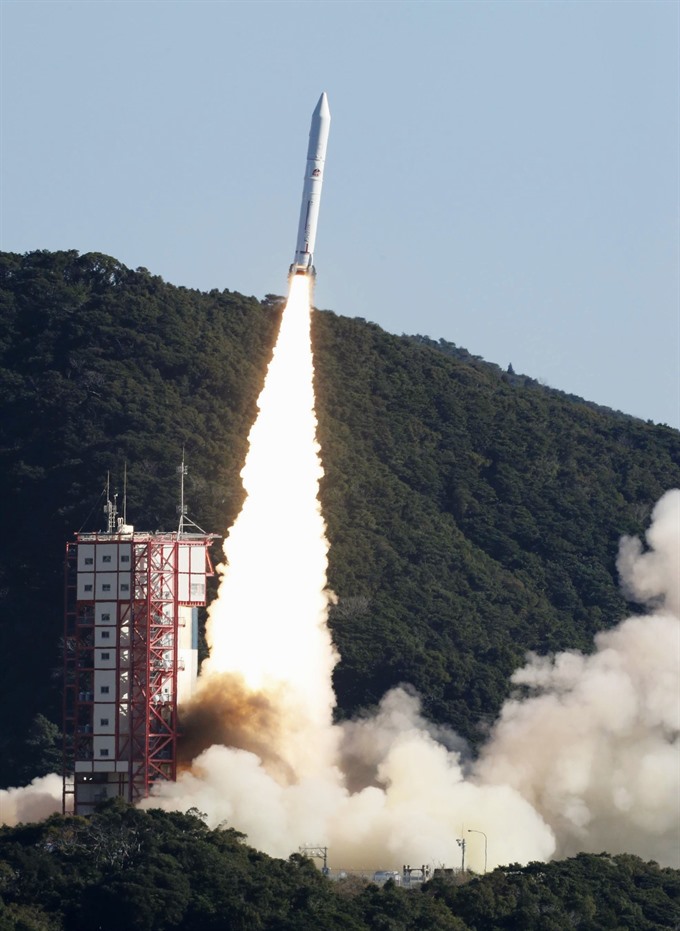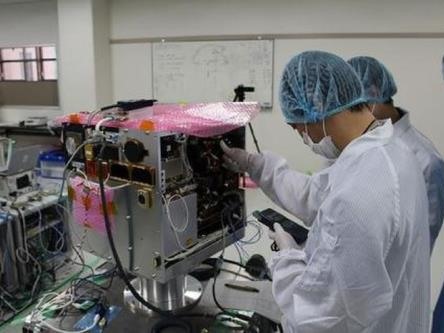 Society
Society

Việt Nam has made another step towards exploring the galaxy as a satellite made by Vietnamese engineers was successfully launched into orbit on Friday morning.
 |
| The Epsilon 4 rocket carrying Micro Dragon and six other satellites into orbit. — KYODO/VNA Photo |
HÀ NỘI — Việt Nam has made another step towards exploring the galaxy as a satellite made by Vietnamese engineers was successfully launched into orbit on Friday morning.
The launch of the Micro Dragon satellite took place at 7:50am (Hà Nội time) at Uchinoura Space Centre in Kagoshima Prefecture, Japan.
The Earth observation satellite was carried by an Epsilon 4 rocket, which also held six Japanese satellites.
Dr Vũ Anh Tuân, deputy director of Việt Nam National Space Centre under the Việt Nam Academy of Science and Technology, told Vietnam News Agency the first signals from the satellite should be received within one to two days. The satellite will operate stably after one to three months.
Tuân was in Japan to observe the launch.
“Micro Dragon is a further step for Việt Nam in gradually mastering the design and production of satellites,” he said.
“Producing satellites of our own will help Việt Nam own satellites to serve different purposes. They will not be used only to observe the Earth but also to warn of natural disasters and calamities, and for tackling climate change.
“Việt Nam will not need to depend on a third party in satellite production. It will also help facilitate the development of other industries like materials, mechanical engineering and automation.”
Micro Dragon was developed by 36 Vietnamese engineers from the National Space Centre with the help of Japanese experts. The engineers were sent to study space technology at five top universities in Japan between 2013 and 2017.
Work started on the satellite in 2013, and it was tested successfully in 2017.
The satellite weighs 50kg and measures 50cm x 50cm x 50cm. It is tasked with observing coastal areas to assess water quality, locate fishery resources and monitor changes in coastal waters to serve Việt Nam’s aquaculture industry. It is also set to receive signals from the ground and transfer data to other distant places on earth, while testing new materials like atomic oxygen and antimony tin oxide-coated solar cells.
The launch was initially scheduled for Thursday morning but was postponed due to unfavourable weather.
In November 2013, VNSC successfully created and launched Pico Dragon, a small satellite measuring 10cm x10cm x 11.35cm.
After this most recent success, Việt Nam plans to build LOTUSat-1 and LOTUSat-2 satellites, each weighing about 600kg and measuring 1.5m x 1.5m x 3m. — VNS
 |
| The Micro Dragon satellite is checked by Vietnamese engineers. — Photo courtesy of Việt Nam National Space Centre |




